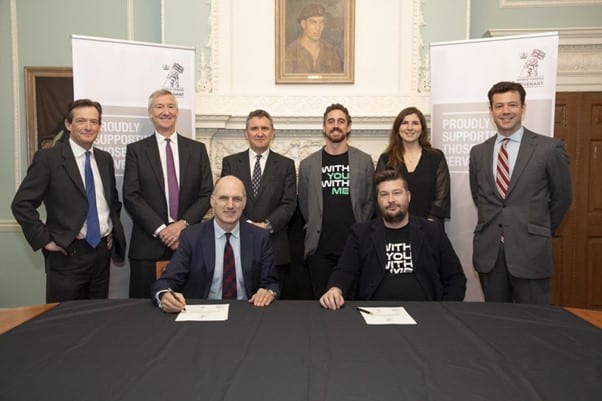
One: we had failed and were failing to educate our populations on the true nature of the Russian threat and the security challenges posed by China.
Two: far too many Allies still believed that once exposed, a secret loses all its power when we have to be bound by the secrets we share.
Three – and my focus today: no Ally has found a way to attract or upskill or retain the right talent, and these shortfalls are an ever-expanding hole in our capability bucket.
Russia’s invasion of Ukraine is the eleventh strategic shock of the 21st Century. Once again, we see the need to be resilient at home and strong abroad across the instruments of national and Alliance power: Diplomatic, Informational, Military and Economic.
Unsurprisingly, this crisis coupled with volatile geopolitical environments in the Asia Pacific is triggering an uplift in Defence spending everywhere. Look at Germany with a one-year boost of £100 billion euros in 2022. And the Australian government last week announced plan to grow its military to its largest size since the Vietnam War, increasing by nearly 20,000 people by 2040.
Great historical shifts are moments of danger and opportunity. Our ability to exploit these opportunities and to establish decisive military advantage in conflict (to win) is directly linked to our ability to find the right people; digitally-skilled, tech savvy, mentally agile, physically fit and committed in and over time.
In other words, our edge will remain human, and must be capable of harnessing and exploiting the power of technology in all domains and all functional areas.
The problem is that every business wants to harvest the same people. Others will pay more than we can afford to pay, and those we train ourselves (at significant cost and over long period of time) too often get poached.
We need a path out of this dark wood. If not, I doubt any of us will be able to attract the large numbers of digitally smart people that we require.
So, we need to win the talent war. This is hardly an insight because we have said the same thing for years, but perhaps now the pressure to succeed will drive a fresh approach because (directly and indirectly) there is always a way.
First, we need to be clever in the way that we attract digital natives and rethink how we are tackling the issue, end-to-end. To win the hearts and minds of digital natives, we need to operate in their world. Currently, we do not.
This weakness is often exposed from the first stage of recruitment, with time-consuming application systems lacking intuition and speed, confusing processes that are not streamlined and endless hoops to jump through instead of open doors.
This experience is at odds with the expectations of the digital natives, who have grown up with screens in their hands, living their lives online and are used to immediate answers. Our recruitment model must offer an intuitive and digitally-optimised experience that meets the expectations of a tech-savvy generation.
Improving efficiency by harnessing technology in the recruiting process will engage applicants from the start of their military career. I also think that an intuitive cross platform app or portal, where paperwork is lodged, aptitude tests and medical questionnaires are completed and updates are provided to the candidate at every step of the process would instil confidence that “Military-Grade” technology is not a myth and that we are serious about developing a dynamic work environment optimised by technology and smart processes.
We also need to tackle the challenge indirectly. This requires us to broaden the pool of talent we are looking to recruit. There are many roles in modern defence forces that sit outside the scope of its traditional recruitment drives. For example, we need people with digital skills to help fight our cyber threats – and these recruits have different skills and backgrounds to what militaries traditionally recruit.
This is an opportunity to bring diversity into our forces – those who may not previously have considered a career in military. We also need to be better at recycling the talent we have. This includes those who have already served.
Veterans or those looking to transition out of the military are the perfect candidates to retain and retrain to fill the new demand for digital roles. This was a topic I touched on briefly with the UK Minister for Defence, People and Veterans at an Armed Forces Covenant signing with WithYouWithMe earlier this week. It's a challenge WithYouWithMe CEO Tom Moore is working with the Australian, Canadian and now UK governments to address. For example, they provided specialised aptitude testing to 30,000 veterans and found that 67% of them had the same aptitude traits as the best software engineers. This was a strategic insight, validated in practice and offers both parties (Defence and veteran) significant benefit.

This article is just a brief introduction to the evolving challenges faced in modern military recruitment, and it's a topic I plan to delve deeper into over the coming weeks. If you'd like to discuss anything further with me in the meantime, please connect.